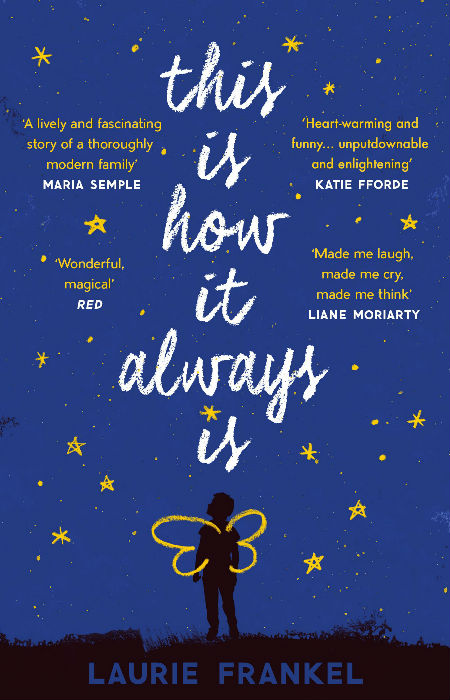
Growing up as the son of a Baptist minister in a family heavily involved in the church, the world was presented as a starkly illuminated contrast of black and white, a demarcation between Christian morality which was, naturally enough, presented as good, and worldly values which were quite obviously and unarguably bad.
It was a comforting way to live, with every decision a seemingly easy one predicated purely on whether something good would be upheld and something bad would be struck down.
And yet as I grew older and began to question the inconsistencies between what I had been told and how the world actually is – if you choose, as so many don’t, to loo up and over the impenetrable wall of rigid belief and consider whether something else might be at work in the world beyond narrow, legalistic dogma – it became clear to me that we live in a world of complex, nuanced and diverse greys that require thoughtful consideration to navigate and which don’t always present as clear and easy answers.
In her intensely thoughtful and emotionally resonant book, This Is How It Always Is, Laurie Frankel examines what happens to one family when the world as they know it is upended by one simple action by the youngest of their five sons.
Claude has always been delightfully, prodigiously idiosyncratic and very much possessed of his own unique sense of who he is, and so when he declares he wants to wear a dress to school, it is not seen as anything more than a poorly-timed (in the middle of the frantic rush to get ready for school) expression of his much-loved eccentricity.
“‘Is that why you want to wear a dress? Because all your friends wear dresses?’
‘I guess,’ Claude guessed. ‘And tights.’
‘Well. Usually boys don’t wear dresses to preschool,’ Rosie admitted carefully. ‘Or tights.’
‘I’m not usually,’ said Claude. This, Rosie reflected, even at the time, was true.” (P. 52)
But as time goes on and Claude chooses, with the enthusiastically loving backing of his grandmother Carmelo, a pink bikini with white and yellow daisies to wear to a major neighbourhood event at the local pool, a move his welcomingly open-minded parents support (though not without some reservations; less about its rightness and more about how others would view it and thus treat Claude), and then wants to dress in bright, pretty girl’s clothing at school, it becomes increasingly clear that there is more going on than a penchant for cross-gender public dress-up.
Claude says to his mother and father over and over that he thinks he is a girl – that element of wavering is less about being sure of gender identity at age six (Claude is way ahead of his peers in many things) and more the fact that no child has the depth and breadth of cognitive reasoning to fully know their own heart and mind.
Filling in the gaps or making sense of it all falls to his parents writer Penn and doctor Rosie who are the type of people who embrace difference and diversity without thinking about it, not because they have a desire to feel a warm and fuzzy liberal internal vibe, but simply because this is how they naturally and without question see the world.
Their expansive embrace of things beyond the norm is tested though when Claude’s desire to be a girl doesn’t showing any signs of diminishing, growing stronger in fact, and he insists that the bedtime story sessions that Penn holds with all five sons (Ben, Roo, Rigel and Orion and Claude) should include a princess as well as a prince.
Penn is far more adept at pivoting to this new reality than Rosie who struggles not with whether Claude, now Poppy (he chooses the name of his dead aunt, Rosie’s sister, raising all kinds of feelings for her) is a girl, though that is a lingering thought, but how to handle a transition that has the capacity to put the socially-disapproving cat very much among the pigeons.

The cat, of course, makes its way into the fray well ahead of what Rosie thinks she is ready for.
So comprehensively are their lives disrupted by the bigotry of some people in their circle and by a searing event Rosie deals with one night in the ER, that they are forced to change much about their lives, leading to an understandable debate, not just within their marriage but with their sons as well especially Roo (short for Roosevelt), about how far changing things for one member of the family should change things for the entire family.
Frankel, who has a transgender daughter herself and knows the imperfections of the humane experience, especially that of parenthood well, sensitively and beautifully handles the great seismic shift that takes place, even in slow motion, as a family expecting one thing – five sons and no daughters – is forced to pivot to four sons and one daughter.
Quite apart from the gorgeous style in which it is written, This Is How It Always Is radiates not simply a measured and caring understanding of a complex issue but a willingness to examine how deeply flawed even the best and most well-intentioned of responses can be.
There is no doubting that Penn and Rosie, who love each other profoundly and honestly, love Claude/Poppy (and indeed all their sons without reservation) – the use of both these names reflects how the family and even Claude shift back and forth in the matter of true gender identity until events take their natural, more permanent course – but while they want only the best for him and for the whole family, they don’t always get it right.
“Maybe there was a moment when the moment was right, but over the years, Rosie and Penn realized the impossibility of finding it. For the first few thousand of them after they met someone, it was too soon, Poppy’s story too awkward and complicated, too intimate, too risky to share with new acquaintances. But by the time those acquaintances became close friends, it was too late. Perhaps there was a perfect moment in between, when you were close enough to tell but not so close it was problematic that you hadn’t done so already, but it was infinitesimal, too fleet and fleeting to pin down, visible not even in hindsight.” (P. 191)
This is what makes This Is How It Always Is such a refreshingly delightfully heartwarming read – it doesn’t pretend issues this complex can be dealt with and resolved through some sort of movie-of-the-week simplistic glibness.
There are a lot of moving pieces and one very precious life at stake, something of which Frankel is acutely aware, and which by extension informs everything Penn and Rosie do, good or bad.
It is testament to the strength of their love for each other and their kids, and to the practical, meaningful expression of their ideals, that they do make it out the other end, or to be fair to the beginning of the journey to the other end, and it is a credit to Frankel’s gloriously nuanced and exquisitely well-expressed writing that are we are able to appreciate, even in small but important measure why this journey is so important to everyone involved.
This Is How It Always Is is a rich, beautifully told, intelligently thought through and loving novel that is suffused with pain, joy, sadness and a great deal of humour (so life really) that feels groundedly normal and yet magically wonderful at times, a story that examines a very modern issue for many families who have come to understand, just like many of us, that life is far more diverse and differently expressive than any of us gave it credit for and that we must adapt to this new reality and embrace, lest lives be lost or damaged as a result.